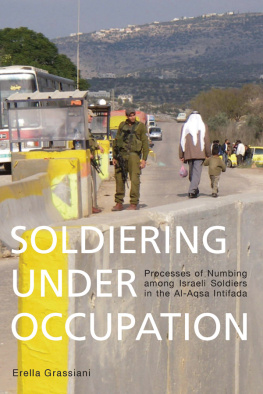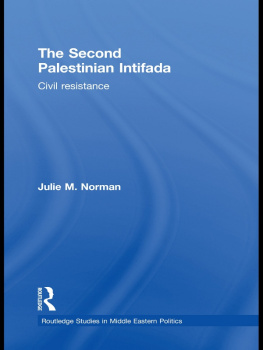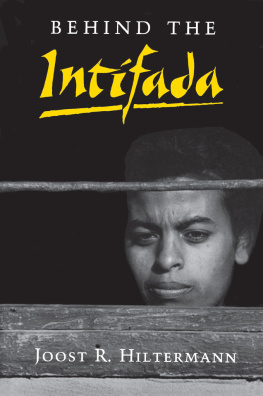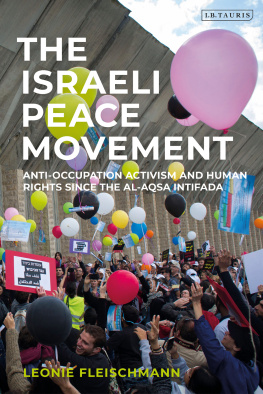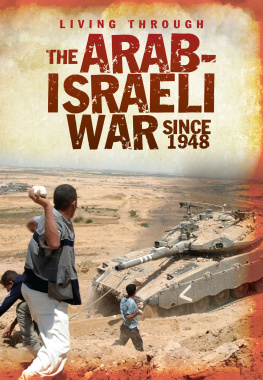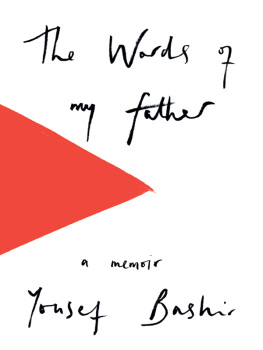SOLDIERING UNDER OCCUPATION
Processes of Numbing among Israeli Soldiers in the Al-Aqsa Intifada
Erella Grassiani
Published in 2013 by
Berghahn Books
www.berghahnbooks.com
2013 Erella Grassiani
All rights reserved. Except for the quotation of short passages for the purposes of criticism and review, no part of this book may be reproduced in any form or by any means, electronic or mechanical, including photocopying, recording, or any information storage and retrieval system now known or to be invented, without written permission of the publisher.
Library of Congress Cataloging-in-Publication Data
Grassiani, Erella.
Soldiering under occupation : process of numbing among Israeli soldiers in the Al-Aqsa Intifada / Erella Grassiani. -- 1st ed.
p. cm.
Includes bibliographical references.
ISBN 978-0-85745-956-5 (hbk.: alk. paper) -- ISBN 978-0-85745-957-2 (ebook)
1. Al-Aqsa Intifada, 2000---Atrocities. 2. Soldiers--Israel--Social conditions. 3. Soldiers--Israel--Moral conditions. 4. Soldiers--Israel-- Attitudes. 5. Apathy. 6. Military ethics--Israel. 7. Military government--Israel. 8. Human rights--Israel. 9. Human rights--West Bank. 10. Human rights--Gaza strip. I. Title.
DS119.765.G72 2013
956.9405'4--dc232012032897
British Library Cataloguing in Publication Data
A catalogue record for this book is available from the British Library
Printed in the United States on acid-free paper
ISBN 978-0-85745-956-5 (hardback)
ISBN 978-0-85745-956-5 (paperback)
ISBN 978-1-78238-228-7 (institutional ebook)
ISBN 978-1-78238-229-4 (retail ebook)
For my mother, Cora Zoutewelle
LIST OF FIGURES
ACKNOWLEDGEMENTS
This work could not have been written without the help and support of many. I won't be able to thank you all, but I'll give it a try.
First of all I would like to thank the Netherlands Defense Academy (NLDA) and the Executive Board of the VU University for making this research possible by contributing financially. I also thank the two anonymous reviewers who helped me revise the book to its current state.
I would then like to thank my academic teachers; starting with the late Donna Winslow who introduced me to the world of anthropology of things military. Furthermore, I want to thank Jan Abbink for his supervision and Desiree Verweij for introducing me to the NLDA and for believing in this anthropological adventure into the morality of Israeli soldiers. In particular I want to thank Eyal Ben-Ari, for his encouraging support and for his ability to let me believe in myself, over and over again. Eyal: Toda!
Without the great atmosphere of the Department of Social and Cultural Anthropology of the VU University my time there would not have been the same. I want to thank everyone for making me feel at home. In addition I want to mention some special people: Bram for his never-ending enthusiasm and Tijo for not taking me too seriously. During the last stretch of finalizing this book my writing club mates Ellen Bal and Lorraine Nencel were my always-available supporters who encouraged me and convinced me I was on the right track.
I can, furthermore, not forget to thank the guys; the young Israeli men who took the time to relate their sometimes difficult experience of serving as soldiers in the Occupied Palestinian Territories to me. Without their stories there would not have been a book to write. I do hope, however, that in the future their children will have other, more peaceful stories to tell.
A very special thank you goes to Breaking the Silence and Yehuda Shaul in particular for generously giving me access to their testimonies and photo material.
Finally, I would like to thank my home base: my sister Ayellet and my mother Cora who were my biggest supporters. Rob who helped with the draft. My father Shmulik, savta Reni and all my other friends and family in the Netherlands, Israel and elsewhere who are too numerous to mention by name: thank you and toda for just being there and helping me through the rough patches. Lastly, Adnan, who literally ran into my life, you made finalizing this work so much easier with your endless support and encouragement, choukran motek.
PREFACE
In July 2008, the media in Israel and abroad reported about an Israeli infantry soldier who had shot a bound Palestinian arrestee in the foot. This incident was filmed by a Palestinian girl living in the village where the incident took place. This, being a crystal clear example of immoral and illegal behaviour (according to Israeli and international law) on the part of the soldier, triggered military officials to quickly condemn the incident and to state that this serious incident negates army values, while Minister of Defence Ehud Barak said that this is an unusual and unacceptable incident and it doesn't represent the IDF (Israeli Defence Forces) or its values, after which he added that, warriors do not behave like this.
In April 2012 an IDF officer was filmed beating a Danish protester with the butt of his rifle. The film clip was publicized on YouTube and soon enough the same kind of reactions could be heard from Israeli officials; the incident was condemned and the officer was demoted from his function hours after the story was made public. The message was that this was not IDF-like behaviour.
These two incidents, which are only few amongst many of such events, triggered the same kinds of reactions especially concerning questions of responsibility. In all official discourse the events were denounced and efforts were made to emphasize that the military would take these events seriously. In the first case it would try either the soldier who fired the shot or his commander who the soldier said had given him an order to shoot the bound man. In the second event the officer was refused promotion and was demoted from his current function. Importantly, responsibility was placed with the individual soldier or officer and not with the military system itself.
Such incidents and especially the discourse surrounding them are not only very disturbing, they are also very informative examples of one of the points I want to bring home with this work. As is so often the case, the Israeli military and political establishment chose to look solely at the incident as something detached from its wider context; they tried to present the suspects as rotten apples whose behaviour was despicable and from whom they distanced themselves. They did not take a more structural perspective, one that would incorporate a more complete picture of Israeli soldiers as an occupying force within the OPT (Occupied Palestinian Territories) and the implications such work has on their (moral) behaviour.
This work was born out of a discontent with the official discourses around events such as those described above. The establishment and the military refuse to take any responsibility for the misbehaviour of their officers and soldiers and hide themselves in a cloak of innocence. I am convinced that the system within which these people work is not just an innocent context, but a deeply forming one. Here I want to investigate the processes at hand. What happens when soldiers serve as occupiers within an occupied territory? What factors are of influence on their behaviour, on their moral decision making and on the violence that they use.
This work is then an investigation into young Israeli men and their experiences as soldiers in the IDF while serving in the OPT as combatants. The research is focused on the moral orientation of these soldiers in the context of their everyday lives as conscripts in this particular setting. We could call this work an investigation of micro-ethics, to apply a term Ignatieff (2001) used to indicate the need for research on moral issues in the military at the level of the soldiers and young commanders themselves.


